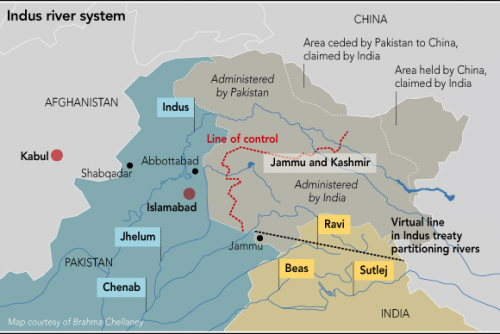CURRENT AFFAIRS
Get the most updated and recent current affair content on Padhaikaro.com
Permanent Indus Commission
- IAS NEXT, Lucknow
- 04, Feb 2022

Reference News:-
The annual meeting of the Permanent Indus Commission between India and Pakistan is due, but no schedule has been finalised as of now.
- Under the Indus Water Treaty, it is mandatory to hold a meeting at least once every year ending March 31.
About the Indus Water Treaty:
- It is a Water-Distribution Treaty, signed in Karachi on 1960, between India (Pm Jawaharlal Nehru) and Pakistan (President Ayub Khan), brokered by the World Bank.

Under the provisions of the Indus Waters Treaty, signed between India
and Pakistan in 1960, all the waters of the eastern rivers — the Sutlej, Beas, and Ravi — amounting to around 33 MAF (million acre-feet) annually is allocated to India for unrestricted use.
- The waters of western rivers — Indus, Jhelum, and Chenab — amounting to around 135 MAF annually are largely for Pakistan.
The right to generate hydroelectricity:
Under the Treaty, India has been given the right to generate hydroelectricity through a run of the river projects on the western rivers subject to specific criteria for design and operation.
- It also gives the right to Pakistan to raise concerns on the design of Indian hydroelectric projects on western rivers.
Permanent Indus Commission:
- The Permanent Indus Commission is a bilateral commission of officials from India and Pakistan, created to implement and manage goals of the Indus Waters Treaty, 1960.
- The Commission according to the treaty must meet regularly at least once a year, alternately in India and Pakistan.
The functions of the Commission are:
- to study and report to the two Governments on any problem relating to the development on the waters of the rivers.
- to solve disputes arising over water sharing.
- to arrange technical visits to projects’ sites and critical river head works.
- to undertake, once in every five years, a general tour of inspection of the Rivers for ascertaining the facts.
- to take necessary steps for the implementation of the provisions of the treaty.